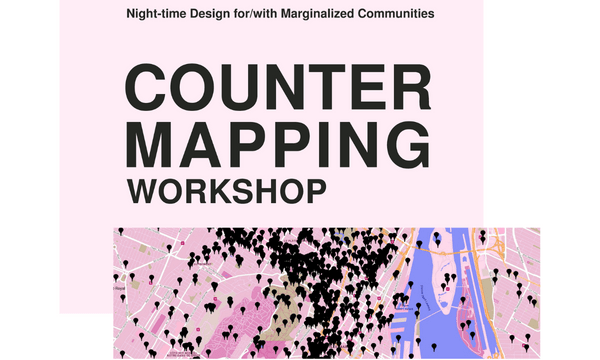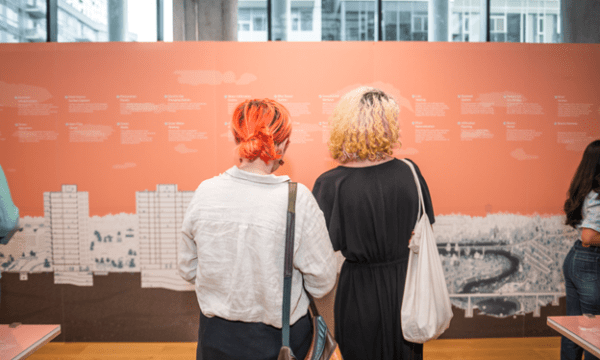Our McGill University-based team of scholars has research expertise on spatial justice, night studies, sleep studies, and tent cities. We approach these topics through the complementary lenses offered by our disciplinary homes in Architecture, Communication Studies, English, and Urban Planning. The project, “Night-time Design for/with Marginalized Communities” has emerged from our conversations about the intersections of research expertise. Since we are still exploring developing methods of working together, we decided to begin our explorations with case studies on physical spaces purpose-built or adapted to offer services and care after hours.
We are interested in finding out what happens after the normative 9-5 day is over and perhaps also into the night and early hours of the morning. “Spaces of Nightcare” is a term we coined in this project to refer to a loose grouping of temporary and permanent spaces that operate beyond the workday and that provide “care” rather than surveillance or consumption as in nightclubs or restaurants—though such commercial spaces may also be offering forms of care beyond capitalist transactions. We are interested in understanding what kind of care spaces exist through the 24-hour day and whom they serve. We are also interested in finding out what their spatial requirements and adaptations are so that as we analyze these case studies, we can arrive at some common criteria or recommendations for future designs. We may even be able to collaborate with and co-design some of these spaces so they can “care” better.
What kind of care is needed during the night and for whom? For people who work shift work, more flexible arrangements of care are necessary. These workers may be caregivers for children as well as adults with disabilities. Where do they trust their dependents if they have to work past daycare or school hours? For people who work in nightlife and entertainment industries, what kinds of services and supports are available to support their own wellbeing? And what do people who are underemployed or unemployed and may additionally lack access to housing do? Where do they go? Whom do they turn to? How are notions of care and hospitality centered for people who are unhoused and/or in crisis?
From 24-hour childcare spaces to safe spaces for sex workers, we have identified a working list of case studies from around the world. Studying them via interviews and guided site visits where possible will help us arrive at a more nuanced understanding of what “care” means in the context of the urban night. The inventory of case studies will enrich the focus for each year. On our first year, we have sought collaborations with Montreal-based NGOs that provide support to people who are unhoused. On our second year, we are starting to learn about care spaces for LGBTQ+ individuals. Through analyzing these case studies and conducting interviews with service providers, frontline workers and other types of caregivers, we hope to answer some of the following questions:
- What kind of amenities, spaces are built/adapted for people’s needs at night? Who funds them? Who can be mobilized to build these spaces?
- What are some of the established practices, in Canada and abroad, of what has already been done as night care spaces?
- What are some of the types of innovative approaches including different communities of different needs?
- What are some of the design elements to be taken into account in conceiving spaces of night-time care?
As we continue to conduct our research and create a roadmap for inclusive and accessible night-time design, we encourage members of other research teams and the wider community to get in touch with us with your own international examples of spaces of night care.
To learn more about the research led by Mcgill University in Montreal, click here.




